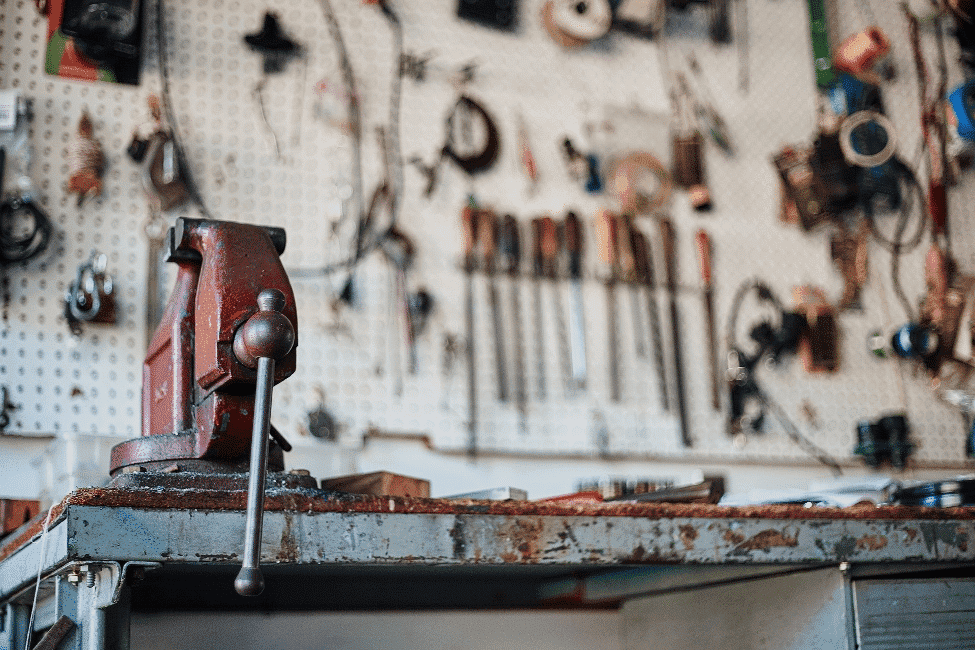Engineering is not only a job, but also a way of life. And if you have many creative projects in mind, they can only come to fruition if you use the right tools. A well-stocked toolbox is essential for any well-made job, and the good news is that you don’t have to go far to look for these must-have pieces.
In recent years, the DIY sector has grown tremendously, and you’ll be surprised to discover that many of the tools engineers use professionally can now be found in online stores. So, whether you want to start an extensive project, repair something, or you just need a few tools that you know you can count on for general upkeep, here’s the checklist to follow:
A reciprocating saw
Are you looking for a versatile cutting tool that works just as well on floorboards, pipes, and plasterboards? Then you need a reciprocating saw. You can use it to cut both vertically and horizontally, you can adjust the speed depending on your needs and, because it’s handheld, it’s really easy to carry around. Another key benefit of reciprocating saws is that you can get to tight points where regular power tools can’t reach, so if your project involves doing a lot of detailed work, you really can’t go wrong with it. There are many great models to choose from on the market but, for your purchase to be successful, you should consider five important factors:
- Power
- Stability
- Reliability
- Battery life
- The blade brake system
A wrench set
No matter the complexity of the task, you need a good wrench set. They’re some of the most versatile tools for engineering projects, and, to save yourself the trouble of buying a new wrench every time, it’s best to make a bigger investment and buy yourself a whole set. There are actually over 40 types of wrenches, but the most common (and useful!) ones include adjustable wrenches, Allen wrenches, combination wrenches, and open-ended wrenches. Wrenches are generally some of the most affordable tools, so you won’t have to worry about breaking the bank. However, to avoid overspending, think of the projects you’re mostly likely to do, and get a set that includes the right pieces. For example, there’s no need to spend a lot of money on an impact wrench if it will only sit in the garage all day.
Pliers
Simple by design yet versatile thanks to all their uses, pliers help you grip objects firmly. Like wrenches, they come in a variety of shapes and sizes, depending on the object you want to manipulate. You have side cutter pliers, slip joint pliers, and pinchers, which can also be used to cut things. One of the biggest mistakes enthusiasts make is using the old plier sets they inherited from their grandfathers. But while those pliers may have sentimental value, and, to a certain extent, they get the job done, they don’t really live up to modern standards. If you only need to use them every once in a while, they’re alright but otherwise, if you need to use pliers frequently, it’s best to invest in a brand-new set. The reason is simple: modern pliers have a much more ergonomic design that reduces muscle fatigue and the risk of carpal tunnel syndrome, which is quite common in factory workers.
Protective gear
Safety comes first when doing DIY projects. Even if you’re an experienced engineer and you’ve done these things a thousand times, you should never underestimate the risk of accidents. In fact, without safety tools, DIY projects should be avoided altogether so if you don’t have the following in your kit:
- Dust mask. If you do a lot of woodworking projects, or any kind of renovation that causes dust, a dust mask is essential. It will prevent you from inhaling small dust particles and other potentially toxic substances that cause allergy, asthma, and irritation of the respiratory tract. According to the National Institute for Occupational Safety and Health, masks should ideally have a safety rating of P100 to protect yourself from the dangers of airborne particles (including asbestos, which may still be found in some oil buildings, and lead, which can be found in some paint).
- Goggles. Contrary to popular belief, protective goggles aren’t required only for welding projects. Something can get in your eye when you drill and saw too, so it’s best to be safe than sorry. For maximum protection, buy a pair of full-face visors because they protect your entire face.
- Earmuffs. Some power tools, such as chainsaws, produce over 100 decibels, but anything over 85 decibels can lead to hearing loss, even after as little as two hours of exposure. A power tool that produces over 100 decibels can cause hearing loss can cause hearing loss within 15 minutes, so always wear protective earmuffs.
- Gloves. Scratches, burns, and scars are inevitable when doing DIY projects. To protect yourself from them, always put on a pair of thick gloves before starting work.
A power drill and drill bits
When you want to drill holes in a rigid material, such as concrete, glass, or stone, muscle power alone isn’t enough. To ease your work, and get a much cleaner result, you need a power drill. There are many fantastic models on the market, with variable speeds and adjustable torque, so choose one that matches your most common projects. While you’re shopping for power drills, remember to get multiple drill bits too. As a rule of thumb, twist drill bits work best for thinner materials such as plastic and wood, paddle bits are for wood, masonry drill bits work for hard materials such as concrete and stone, and installer bits are recommended for installing wiring systems. If you want to do decorative drilling for woodworking and masonry, your best options are Forstner bits.

